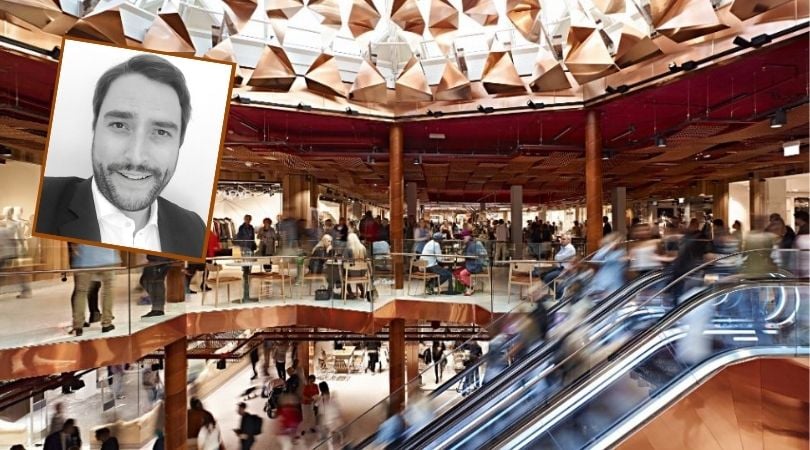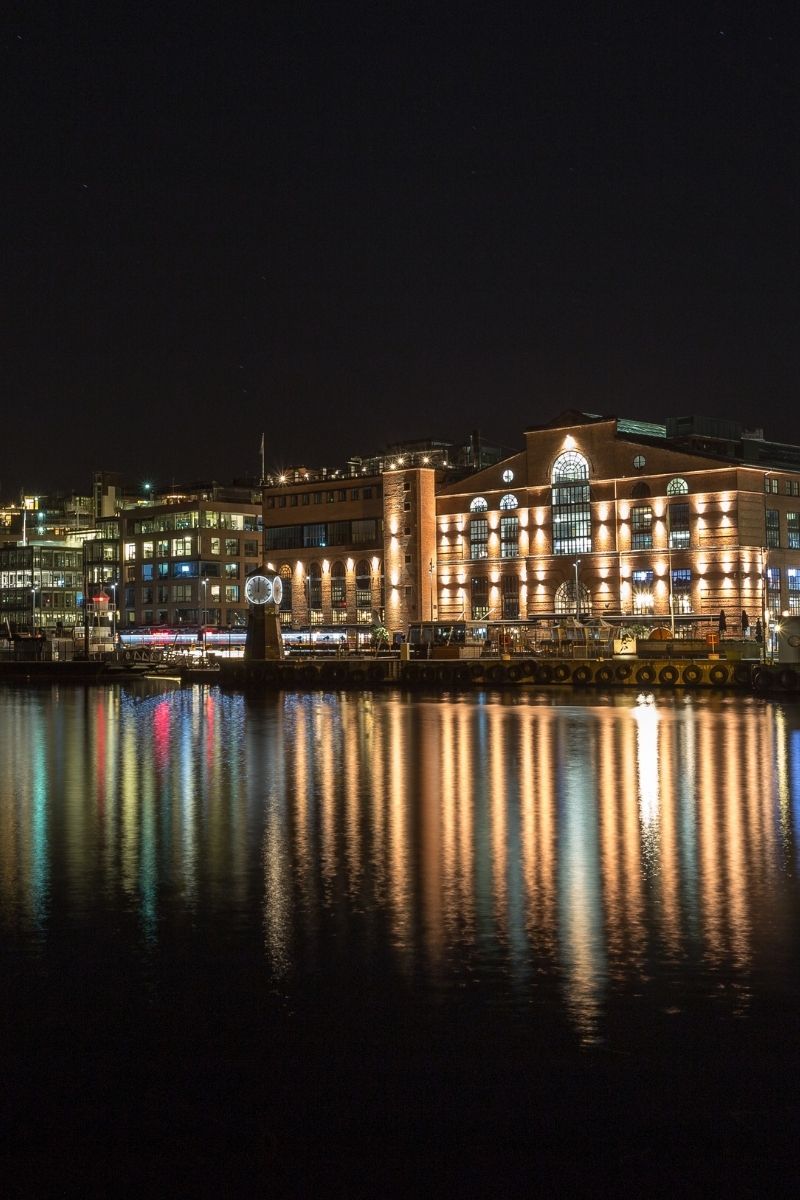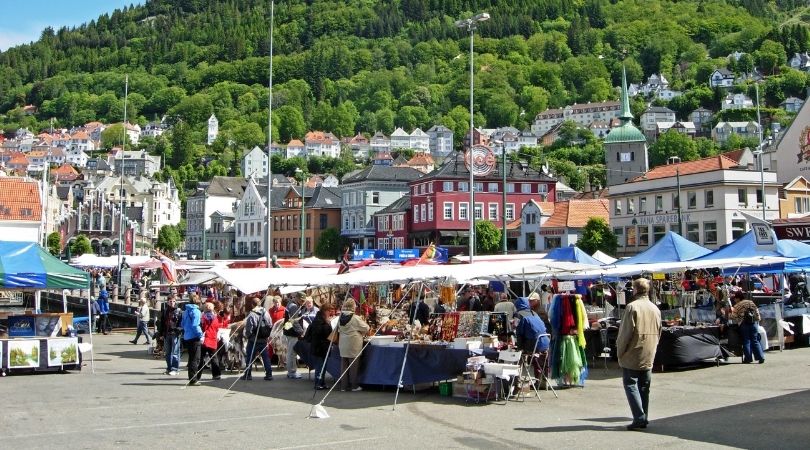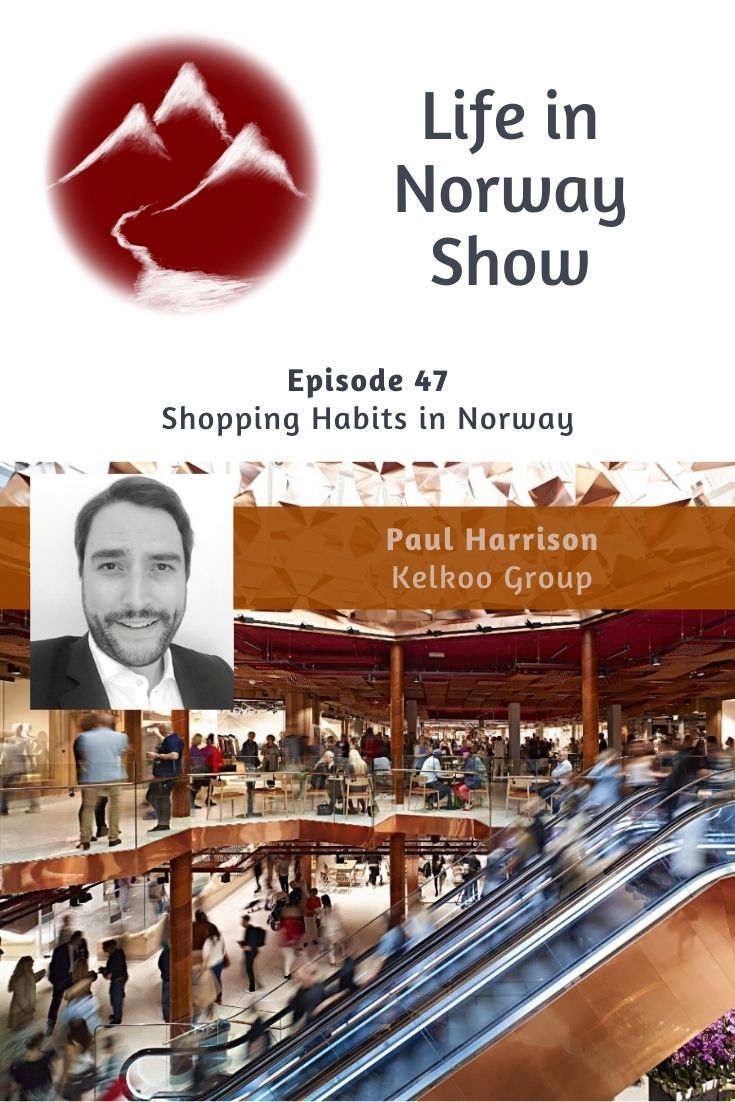
Life in Norway Show Episode 47: Paul Harrison from the Kelkoo Group joins the show to talk about shopping habits in Norway, from price sensitivity to mobile payments and more.
Welcome to the latest episode of the Life in Norway Show, a podcast all about living in, working in, and visiting Norway. In this episode, I'm doing a deep dive into the world of shopping with fellow Brit Paul Harrison.
Paul lives in Oslo where he works for the Kelkoo group. We talk about how shopping habits differ between Norway and other countries, the supermarket experience in Norway, the state of online shopping in Norway, and a look at how our money and payments are rapidly moving online.
Read more: Norwegian Habits
Listen to the show
You can listen to the show using the web player below, or on your podcast player of choice. This includes: Apple Podcasts, Stitcher, YouTube (audio only), and now Spotify. Simply search for ‘life in Norway' on your platform of choice to get started.
Wherever you listen, don't forget to hit ‘subscribe' to ensure you don't miss an episode!

Here are some highlights from Paul's interview:
Introducing the Kelkoo group
Paul introduces Kelkoo, which is best known for its price comparison and e-commerce advertising services in Norway and many other countries:
“Kelkoo is one of the real original ‘dot com' companies, established in 1999. And ever since then, we've had a presence here in Norway, which is quite unusual, actually. We've always had this connection with Norway and being based in Oslo.”
“We have these great relationships with local retailers and shops. What we're able to do for them is send them people to their web shops, give them access to new audiences, new shoppers, and help them to convert those visitors into shoppers.”
Towards a “cashless Norway”
There are some very clear differences between shopping in Norway (and Scandinavia) and some other countries. One of the biggest is the use of cash, or lack of. Even on market stalls you can pay with Vipps, Norway's leading online payment system.
The recent change to Norway's banknotes is set to be the last. Paul says that Norway is in effect already a cashless society:
“The last time I used cash was about a month ago. I think we are way ahead of a lot of countries in terms of going cashless because Norwegians trust institutions and adopt new technology very quickly. Vipps is a good example of that for paying with your mobile phone, but it's also been widely adopted for person-to-person payments.”

Supermarket shopping in Norway
Paul points out that the dominance of several big players in essentially controls the choice and price levels in Norwegian supermarkets. He highlights some challengers, some of which have succeeded and some have not.
“More recently we've seen Iceland coming from the UK to offer different products and lower prices. I'm following them closely and they are having some success. They've got distribution now across every Circle K gas station in the country.”
Paul also mentions the online grocer kolonial.no that is seeing a lot of growth: “That sort of innovation is really exciting for me to see. I hope that they're successful, because again, they're offering choice, convenience, groceries delivered to your door. And I think that's really taking the challenge to the the big groups.”
Online shopping habits in Norway
Paul says he personally shops online almost exclusively using his mobile phone: “We've got such great connectivity speeds here, and that trust and ease of payments.Being able to click on something and not even enter your credit card details, just having the e-invoice sent to you later, is very, very convenient. So I value that.”
We also talk about some of the challenges in shopping on foreign online stores because of recent changes to the rules on VAT and import duty relating to imports. However, Paul points out the government has delayed removing the NOK 350 exemption, meaning that low-value purchases remain exempt for the time being.
We also chat briefly about the launch of Amazon in Sweden, and what that might mean for the future of e-commerce in Scandinavia.
Links from the show
Some of the things we spoke about during the interview:
- Kelkoo Group website
- Kelkoo Norway website
- Norway's new import VAT & duty rules
- The latest on the NOK 350 exemption
- Follow Paul on LinkedIn
If you enjoyed this show, why not share it on Pinterest so others can find it too?



Amazon has brought convenience to the United States but it has also negatively impacted our cities and towns. I live in San Francisco and there is little point going downtown anymore as many of the shops closed up because they couldn’t compete. Even our local neighborhood shops have been hit. Retail is pretty much just nail salons now. Our 3 block strip used to have two thriving pharmacies, several clothing stores, a stationary store, 2 toy stores, all gone. One pharmacy is left and it’s barely surviving and this was before Covid. A few local bookstores in sf have survived but they struggle. I hope the Norwegian government can subsidize small businesses if Amazon does arrive.
I live in New York City and I share the grief over the loss of many small businesses due to the large on-line shopping providers. However, I also must admit that for many people, myself included, the benefits of on-line shopping outweigh the side effects. Getting supplies to care for a bedridden stroke patient, the need to avoid person-to-person contacts during this pandemic, the benefit of having an A/C delivered quickly to my door during a heat wave,…etc, etc. etc. were all a huge benefit (especially for an octogenarian). This is the future and we can look forward even while we have fond memories of the past.